|
I had a bit of a drug flashback this morning while I was half-asleep and delirious. Not the cool oneness-with-the-universe part, just some of the weirdness. I wonder how often that will happen. It's been almost two weeks since I ate the mushroom gummy. I don't regret it yet.
Today I'm still with extended family, and tomorrow I'm moving to Midvale. Where I was excited before, now I'm nervous and depressed, and I'll probably just have to wait that out. I think this move is a good thing, but it comes with an opportunity cost, as change always does. Anyway, I'm going to make another brief post. Of all the things I could write about after this week with family, I think the most important is a recommendation to all parents or prospective parents of young children to not let them watch an awful show called Blippi. My little cousin loves that show. Lots of kids love that show. But I could tell within seconds from the host's overenthusiasm and goofy voice that he thinks kids are stupid. I could tell the difference between this show and superior kids' shows that aren't excruciating for adults to watch because the writers put some actual effort into them. I knew I couldn't be the only adult who recognized this, so I did some research, and after accidentally finding out about the disgusting viral video that Stevin John did before he became Blippi, I found this Current Affairs article that explains why his garbage show won't help your children develop imagination, critical thinking, or empathy. (I actually think it's kind of weird that the author brings Trump into it, but his points are well made.) My Blippi-loving cousin is so uncultured that he complained about watching Mary Poppins, which I felt an urge to watch for the first time in a long time because we flew a kite. I appreciate more than ever how funny and heartwarming this movie is and how good the music is. I also realize now that even though it's sixty years old, if it came out today, conservatives would melt down over its woke feminist and anti-capitalist undertones. Of course there are the obvious bits about women's suffrage that don't affect the plot in any meaningful way, but I can also imagine certain YouTubers complaining that all of the male characters in the movie are made fools of by female characters. George Banks is hotheaded and irrational and mean compared to Winifred, and Mary Poppins manipulates him with ease. (I also realized what a gaslighter she is to him and the children, but that's neither here nor there.) Mary Poppins scolds Bert and Uncle Albert for their foolishness. Michael can't snap his fingers, and at a pivotal moment, he says something dumb and Jane tells him to be quiet. Oh, how the YouTubers would hate that if Disney did it in 2024! And why does the movie's female protagonist have to be practically perfect in every way? The Mary Sue jokes write themselves. As for the anti-capitalist part, the bank (run by white males who are portrayed as jackasses, of course) is portrayed as an antagonist. Childlike whimsy and nonsense and frivolous expenditures to benefit wildlife are portrayed as superior to acting self-important and making frugal investments in colonialism. Jeez, that was too easy. If I didn't hate my mannerisms and my voice, I'd make a YouTube video about it instead of a blog post and make some real money.
1 Comment
My page that includes the full text of LDS Church President Ezra Taft Benson's 1987 talk "To the Mothers in Zion" has undergone a significant spike in traffic in the last couple of days. I can guess why. General Relief Society president Camille Johnson spoke on Friday, and she talked about balancing her education and career with raising a family, without mentioning that she was in direct defiance of the prophet at the time by having a career at all. Countless other Mormon women sacrificed their career ambitions because the prophet told them to. He didn't say, "Make your own decisions based on your individual circumstances." He didn't say, "Motherhood should be your highest priority, but you can do other things too." He said, "Contrary to conventional wisdom, a mother’s calling is in the home, not in the marketplace." He was not ambiguous. He was not open to interpretation. This was only six years before I was born, and when I grew up in the 2000s, I was still being taught at church that married women shouldn't work outside the home if they had a choice. My YSA bishop was also very adamant about that as recently as 2021.
And now, as anyone familiar with its usual lack of transparency and accountability would expect, the LDS Church is quietly pretending that didn't happen and celebrating a woman who disobeyed the prophet. But of course many people are seeing through that and calling it out. And apparently some of them are using my copy of the talk as a source. Glad I could be of help. On the flip side, several Mormons are lying that the church's vendetta against working mothers was just "culture" or the "interpretation" of a few zealots in your ward, and that's also infuriating but not unexpected. I understand all too well the cognitive dissonance that comes from facing the reality that the men you've been taught to revere as mouthpieces for God were as misogynistic as they were racist. Anyway, I formally joined the Unitarian Universalist church today because it's been a good spiritual community that shares my values. It's been at the forefront of social justice movements in the United States instead of getting dragged kicking and screaming behind them like some churches I could mention. I first became aware of it over a decade ago when I had a friend who'd converted to it from the LDS Church, and then I visited it for a religious studies class. I thought the building was weird. It's literally a house. And I understood the appeal of the whole "Love everyone and believe whatever you want" shtick, but I didn't like it. That's exactly the sort of liberal claptrap that I'd been taught to dismiss. Love isn't enough, I thought. You can't just believe whatever you want, I thought. There's objective truth and it matters. At some point, a random woman stopped me on the sidewalk, and I don't remember what she said exactly, but basically she sensed a lot of stress or anxiety in me and suggested I check out Unitarian Universalism, which I didn't. In hindsight, maybe she was led by the Spirit. Or maybe she said that to everybody. Long story short, my perspective has changed. A lot of what I thought was objective truth was actually bullshit, and I have a lot more humility about how much I don't know and probably never will. I still value truth and I still intend to seek after it for the rest of my life, but I no longer think it's the most important thing. I think love is the most important thing after all. Why should God be more concerned about what we believe than how we treat each other? I've increasingly noticed that people who think that way are insufferable if not horrible people. After I lost my faith, I shopped around a little for a new one because I desperately needed the community. And I ended up sticking around with the Unitarian Univeralists, and after a year or so they asked me if I wanted to formally join, and I saw no reason not to. I don't believe it's the "one true religion," and it doesn't claim to be. It's just a community that works for me and a tool for doing good in the world. My imminent departure from Logan puts a bit of a damper on things, but I'll love this congregation while I'm here and then maybe I'll find another in Salt Lake. Things don't have to last forever to be worthwhile. A week ago, the LDS Church had its Relief Society (women's auxiliary) anniversary broadcast. The announcement was cringe. The women's meeting being led by a man is old news, but this time I also noticed that none of the female leaders have names. Sarcasm aside, I guarantee that most Mormons don't know what they are. I can't believe that the church's PR department or correlation or whomever is still so tonedeaf that it didn't bother to suggest this token of basic respect that could be extended without having to change any of the sexist teachings or policies. I said something less inflammatory to that effect in a nuanced Mormon Facebook group, where dozens of women agreed with me while a man accused me of "white-knighting" and silencing any hypothetical women who may have disagreed with me. And women kept telling him he was wrong, but he just would not shut the hell up. He suggested that I should have let "someone with skin in the game," a woman, post about it instead. I want to go on public record stating that I do have skin in the game because women are people and I'm also a people. If you need something more specific, though, I have nieces being raised in this church, and I don't want them to settle for as little as their mother does. (I'm talking only about church stuff. That wasn't a jab at my brother-in-law.) That was nothing to the controversy that would follow, though, because of course the sexist teachings and policies are still the real problem. The church received one of the biggest social media backlashes I've ever seen after it posted a quote from J. Annette Dennis, one of the female leaders whose name wasn't on the announcement. There is no other religious organization in the world, that I know of, that has so broadly given power and authority to women. There are religions that ordain some women to positions such as priests and pastors, but very few relative to the number of women in their congregations receive that authority that their church gives them. By contrast, all women 18 years and older in The Church of Jesus Christ of Latter-day Saints who choose a covenant relationship with God in the house of the Lord are endowed with priesthood power directly from God. And as we serve in whatever calling or assignment, including ministering assignments, we are given priesthood authority to carry out those responsibilities. My dear sisters, you belong to a Church which offers all its women priesthood power and authority from God! First off, she conveniently says "that I know of" so you can't accuse her of being disingenuous if she just doesn't know much about other religions. Even without that caveat, her assertion is unfalsifiable because of circular logic. I'm pretty confident that Mormon priesthood power and authority are imaginary, but to believers, they're the only valid power and authority, so they automatically trump whatever other religions let women do. But even from that perspective, they're largely meaningless in this context. Women objectively don't need priesthood power or authority to do ministering assignments or anything else that they do in the LDS Church outside of the temple. When men perform priesthood ordinances, the belief is that those ordinances aren't valid in God's eyes without the priesthood, and that's reasonable enough on its own. But women don't perform ordinances outside of the temple. They only do things that they and any woman or man in any religion could do without the "priesthood." The women in my little Unitarian Universalist congregation do everything that the men do without any "priesthood." The LDS Church gives its women nothing and tells them that the nothing is something and the something is the most special thing ever. It shouldn't be much of a surprise, then, that this claim that Mormon women have priesthood power and authority is only a decade old. It was a total retcon by Dallin Oaks in response to the Ordain Women movement. "We are not accustomed to speaking of women having the authority of the priesthood in their Church callings," he said in the April 2014 General Conference, "but what other authority can it be?" Hmm, I wonder why they weren't accustomed to speaking of it. Maybe because he just made it up to pacify feminists and dissuade them from demanding actual equality for a few more years. I wonder if he exchanged any tense words behind the scenes with Boyd Packer after his doctrinal innovation almost humorously contradicted what the latter taught in General Conference a few months before I was born: Some members of the Church are now teaching that priesthood is some kind of a free-floating authority which can be assumed by anyone who has had the endowment. They claim this automatically gives one authority to perform priesthood ordinances. They take verses of scripture out of context and misinterpret statements of early leaders—for instance, the Prophet Joseph Smith—to sustain their claims. Well, if this retcon ever worked, it isn't working anymore. The backlash to this quote on Instagram was so big that the church's social media team acknowledged it and promised to share the comments with unnamed church leaders. Then most of the comments disappeared, and the backlash exploded further because people thought the church was deleting them, but the church said it was an Instagram glitch, but the corporation that owns Instagram denied that there was a glitch. I don't know whom to believe. The church has a long history of lying and a long history of squelching dissent, at least as far back as the time its founding prophet ordered the destruction of a printing press because it told the truth about him, but it's not like social media companies are good guys either. Anyway, I have nothing personal against Sister Dennis, who probably believed what she was saying, but the backlash was very satisfying to watch. A lot of my resentment toward the LDS Church is because it indoctrinated me into its "Men and women have different but equal roles" bullshit and intentionally conditioned me not to see obvious sexism right in front of my face. I'm glad I woke up, and I'm glad other people are waking up in increasing numbers, and I'm glad the church is getting held accountable for its bigotry. Mormon women deserve better.
Six months ago, I didn't watch the LDS Church's semi-annual General Conference for the first time in my life, and I experienced some anxiety over the disruption of routine and loss of comfort. This time I just enjoyed doing other things with those ten hours and almost forgot it was going on. Progress! A friend who had to watch bits and pieces because she hasn't yet told her parents she's an atheist filled me in on what I missed. Pay your tithing, wear your temple garments, use the full name of the church, stay on the covenant path. You know, fresh new revelation to address the real issues that people are facing. The tithing part really pisses me off. My friend sent me this. I testify that this promise, at least the way the LDS Church takes it out of context, is bogus. I received no blessings for paying tithing and I lost no blessings when I stopped. Notice, however, the caveats that Andersen adds to make it unfalsifiable and set up the church's ever-popular blame reversal game: spiritual, subtle, easy to overlook, Lord's timing. In other words, when I paid tithing and nothing happened, the problem was with me for either failing to notice or being impatient. I was supposed to just keep giving my money to the church indefinitely regardless of whether God ever got around to keeping his end of the bargain. That kind of defeats the purpose of the promise in the first place. "[P]rove me now herewith, saith the Lord of hosts, if I will not open you the windows of heaven, and pour you out a blessing, that there shall not be room enough to receive it." What part of that sounds subtle or easy to overlook? How am I supposed to "prove" God if he's too sneaky for me to notice? But as I said, the LDS Church takes this verse out of context anyway. The preceding chapter begins thus: "And now, O ye priests, this commandment is for you." Lacking any indications to the contrary, it would seem that the rest of the book of Malachi is addressed to these priests, and that the verses about tithing are actually a rebuke of religious leaders who hoard wealth. Hmmm. The LDS Church has hundreds of billions of dollars, and was fined by the Securities Exchange Commission earlier this year for breaking the law to hide that obscene wealth so its members would keep paying tithing, and of course it hasn't apologized or so much as acknowledged that incident in General Conference. Andersen has a lot of gall to exhort anyone to "be honest in their tithes" when he knows damn well that church leaders up to and including the First Presidency have not. He has a lot of gall to pretend the church still needs any donations when it could fund its operations indefinitely off the interest generated by its obscene wealth. And if tithing was really about personal consecration and putting the Lord first and whatever, it wouldn't be a flat rate for all members. Ten percent of my income was a sacrifice. Ten percent of Jon Huntsman's income is not. This is the other thing I read about that pissed me off. Ex-Mormons on Twitter are not happy about it. I really hope my parents are too smart to buy into this manipulative, emotionally abusive garbage. I left the LDS Church because it's not true and it's not good. I never questioned their faithfulness or their commitment to the principles that it teaches but doesn't live up to. For example, they taught me to be honest. The LDS Church is not honest. I have a problem with that. The problem is not with me or my parents. I don't see eye to eye with them on a lot of things, but they don't deserve to be guilt-tripped over their son making a choice that he has no reason to be sorry for. I won't likely have "a whole chain of descendants," but I kind of want to just so I can not raise them in the LDS Church, especially if they're female and/or LGBTQ. The "covenant path" is hardly worth staying on when the covenants and the supposed authority behind them are based on lies. I'm not interested in perpetuating "a legacy of faith" in a system based on lies. And I'm not interested in living with the monstrous LDS God for five minutes, let alone eternity. I guess my dad's going to be really lonely in the Celestial Kingdom. His dad and his five siblings and another of his kids were already "lost" long before I was. He did everything right to have an eternal family, but as usual, the LDS Church can't and won't keep its end of the bargain.
Saturday was one year since the Islamic Republic murdered Mahsa Amini for not wearing a hijab, sparking protests throughout Iran. After a few months, the Western media largely ignored these protests or straight-up lied that they were basically over, but the truth is that they aren't going to stop until the Islamic Republic is dead. The Islamic Republic has passed the point of no return. It's lost its legitimacy, it's become desperate, and its collapse is a matter of when, not if. The sooner the better, of course. The US and the EU need to hasten that day by growing some spines and treating it like the global pariah that it deserves to be. Down with all dictatorships, down with all theocracies, down with all religious extremism, and down with all misogyny and other forms of bigotry, no matter how much they wrap themselves up in the supposed respectability of faith.
Today I went for a hike in Tony's Grove with members of the local Unitarian Universalist congregation and three dogs. I was the youngest human there by a wide margin. The next youngest human was a mother of adults and teenagers, and everyone else had white hair, or in one case would have had white hair if she hadn't dyed it purplish red. I didn't remember where Tony's Grove was and I didn't realize the drive and the hike combined would total four and a half hours, but I'm not mad. Just tired. The temperature was perfect and the views were gorgeous. Susanne Janecke, a geologist from USU, told us about the caves and the rocks. Supposedly some of the latter were shaped by the ocean before life existed on land. I'll take her word for it. I felt, as I often do these days, insignificant against the scope of this planet's history, and since we'd just had a presentation on climate change by USU hydrologist Patrick Belmont earlier that day, I thought about the possibility that my entire species might not be here much longer, and I wondered why we evolved to be so stupid and whether there's any real purpose to the suffering we've inflicted on ourselves and our home. But mostly I just appreciated the views. |
"Guys. Chris's blog is the stuff of legends. If you’re ever looking for a good read, check this out!"
- Amelia Whitlock "I don't know how well you know Christopher Randall Nicholson, but... he's trolling. You should read his blog. It's delightful." - David Young About the AuthorC. Randall Nicholson is a white cisgender Christian male, so you can hate him without guilt, but he's also autistic and asexual, so you can't, unless you're an anti-vaxxer, in which case the feeling is mutual. This blog is where he periodically rants about life, the universe, and/or everything. Archives
July 2024
Categories
All
|
- Home
- Blog
-
My Literary Works
- Comics by C. Randall Nicholson >
-
Short Stories by C. Randall Nicholson
>
- Childish Stories
- My Dearest Catherine
- It's Really Cold Out There
- Walter Mitty - The Sixth Daydream
- Jesus is a Liberal
- El Coronel - Epílogo
- A Couple of Very Cynical Parables
- Interview with the Ruler of the World (Me)
- The Star Wars Missionary
- Chelise
- Traumfrau
- All Hands on Deck
- It Ain't Ogre Till It's Ogre
- Black Tom: The Unauthorized Encore
- Brittany and the Bear
- Lunatics: A Space Girls Story
- Adventures in the FDR >
- Poems and Songs by C. Randall Nicholson >
-
Essays by C. Randall Nicholson
>
- Childish Essays by C. Randall Nicholson
- Los Braceros
- The Great Pacific Garbage Patch
- The Witches of "Macbeth"
- Evita
- The Second Amendment to the Constitution: Why it is Important to Our Nation
- USU Honors Program Application Essay
- The Giraffe Deception
- Member Missionary Message
- I'm Just a Little Unwell: Coping with Asperger's Syndrome
- Dating Seminar
- An Open Letter to Critics of The Church of Jesus Christ of Latter-day Saints
- How Can any Intelligent Person Be a Mormon?
- Faith and Doubt in My Life
- Discarding Dated Dinosaur Dogmas: Robert T. Bakker and the Dinosaur Renaissance
- Religion, Science, and Art: Elements of the Gospel of Truth
- Why Latter-day Saints Should Embrace Evolution
- Daoism
- Spiritual Autobiography
- From the East: Hinduism and Islam as Compared to My Western Faith Tradition through Poetry
- In Defense of Pickup Lines
- Ass Burgers
- Chasing Kelsey
- Both of the Things Wrong with Charlotte Temple
- Sir Thomas More's Critiques and Commendations for Catholicism
- The Legend of Christor
- How Eugene England Helped Me Transform My Testimony
- Graduate School Statement of Intent
- "Please Join with Us Now in Common Purpose": A Discourse Analysis
- Legos and Gender
- Things That Rhyme with "Elise"
- I Want to Believe: The Persistence of Alien Folklore
-
Reviews by C. Randall Nicholson
>
- Review of "Howard the Duck"
- Review of "Letter to a Christian Nation"
- Review of the LDS Institute's "Uncommon Hour"
- Review of "Madagascar 3"
- Review of "Dating Doctor David Coleman"
- Review of "David and the Magic Pearl"
- Review of the "Mata Nui Online Game (MNOG)"
- Review of "Evolution and Mormonism"
- Review of "Callahan's Crosstime Saloon" (Game)
- Review of "Modern Romance"
- Review of "Solo: A Star Wars Story"
- Review of "The Legend of Zelda: Ocarina of Time"
- Review of "The Book of Mormon" (Musical)
- Review of Jenson Books
- Review of "Live Not By Lies"
-
Literary Fragments by C. Randall Nicholson
>
- Childish Scraps
- The Adventures of Nichch Bror
- Reaching (for the Stars)
- Boys vs. Girls Book 1: The Conflict >
- Dave is a Square
- Star Wreck
-
The Legend of Aaron LaBarr
>
- 1 Marauders of the Mythical Man Chapter One
- 1 Marauders of the Mythical Man Chapter Two
- 1 Marauders of the Mythical Man Chapter Three (Unfinished)
- 1 Marauders of the Mythical Man Chapter Four (Unfinished)
- 2 Crusaders of the Crystalline Chronostone Chapter One (Unfinished)
- 2 Crusaders of the Crystalline Chronostone Chapter Two (Unfinished)
- 2 Crusaders of the Crystalline Chronostone Chapter Three (Unfinished)
- 2 Crusaders of the Crystalline Chronostone Miscellaneous
- 3 Pursuers of the Priceless Power Chapter Two (Unfinished)
- The War >
- The Space Detective
- Skin Deep
- The Sword of Laban >
- LDS Church History Timeline
- Jennifer and Lance
- Logan YSA 36th Ward 2018 History
- Unsent Correspondence by C. Randall Nicholson
- Correspondence Regarding the Worst Day of My Life So Far
-
Indiana Jones and the Saucer Men from Mars
>
- Indiana Jones and the Saucer Men from Mars - Prologue
- Indiana Jones and the Saucer Men from Mars - Chapter One
- Indiana Jones and the Saucer Men from Mars - Chapter Two
- Indiana Jones and the Saucer Men from Mars - Chapter Three
- Indiana Jones and the Saucer Men from Mars - Chapter Four
- Indiana Jones and the Saucer Men from Mars - Chapter Five
- Indiana Jones and the Saucer Men from Mars - Chapter Six
- Indiana Jones and the Saucer Men from Mars - Chapter Seven
- Indiana Jones and the Saucer Men from Mars - Chapter Eight
- Indiana Jones and the Saucer Men from Mars - Chapter Nine
- Indiana Jones and the Saucer Men from Mars - Chapter Ten
- Indiana Jones and the Saucer Men from Mars - Chapter Eleven
- Indiana Jones and the Saucer Men from Mars - Chapter Twelve
- Indiana Jones and the Saucer Men from Mars - Chapter Thirteen
- Indiana Jones and the Saucer Men from Mars - Epilogue
- Behind the Scenes of "Indiana Jones and the Saucer Men from Mars"
-
Indiana Jones and the Monkey King
>
- Indiana Jones and the Monkey King - Prologue
- Indiana Jones and the Monkey King - Chapter One
- Indiana Jones and the Monkey King - Chapter Two
- Indiana Jones and the Monkey King - Chapter Three
- Indiana Jones and the Monkey King - Chapter Four
- Indiana Jones and the Monkey King - Chapter Five
- Indiana Jones and the Monkey King - Chapter Six
- Indiana Jones and the Monkey King - Chapter Seven
- Indiana Jones and the Monkey King - Chapter Eight
- Indiana Jones and the Monkey King - Chapter Nine
- Indiana Jones and the Monkey King - Chapter Ten
- Indiana Jones and the Monkey King - Chapter Eleven
- Indiana Jones and the Monkey King - Chapter Twelve
- Indiana Jones and the Monkey King - Chapter Thirteen
- Indiana Jones and the Monkey King - Chapter Fourteen
- Indiana Jones and the Monkey King - Epilogue
- Running Logan Canyon
- Crusaders of the Chrono-Crystal >
-
About Me
-
About Mormons
- Why Are Mormons So Hot?
- LDS Temples
-
LDS Scriptures
>
- Growth of the LDS Church
-
LDS Racial History
>
- The Lamanite Curse in the Book of Mormon
- The LDS Church and Native Americans Nineteenth Century
- The LDS Church and Native Americans Twentieth Century
- The LDS Church and Native Americans Twenty-first Century
- Black Latter-day Saints Before June 1978
- Abner Howell, Black Latter-day Saint
- Dr. Lowry Nelson vs. the LDS First Presidency
- Race Problems - As They Affect the Church
- Ezra Taft Benson vs. the Civil Rights Movement
- The LDS Church and Slavery
- The LDS Church and Interracial Marriage
- The LDS Church and Black People: Historical Context (Pre-1830)
- The LDS Church and Black People 1830-1837
- The LDS Church and Black People 1838-1842
- The LDS Church and Black People 1843-1844
- The LDS Church and Black People 1845-1848
- The LDS Church and Black People 1849-1852
- The LDS Church and Black People 1853-1860
- The LDS Church and Black People 1861-1868
- The LDS Church and Black People 1869-1878
- The LDS Church and Black People 1879-1889
- The LDS Church and Black People 1890-1899
- The LDS Church and Black People 1900-1903
- The LDS Church and Black People 1904-1907
- The LDS Church and Black People 1908-1912
- The LDS Church and Black People 1913-1930
- The LDS Church and Black People 1931-1946
- The LDS Church and Black People 1947
- The LDS Church and Black People 1948-1954
- The LDS Church and Black People 1955-1959
- The LDS Church and Black People 1960
- The LDS Church and Black People 1961-1962
- The LDS Church and Black People 1963
- The LDS Church and Black People 1964
- The LDS Church and Black People 1965
- The LDS Church and Black People 1966
- The LDS Church and Black People 1967
- The LDS Church and Black People 1968
- The LDS Church and Black People 1969
- The LDS Church and Black People 1970
- The LDS Church and Black People 1971-1972
- The LDS Church and Black People 1973-1975
- The LDS Church and Black People 1976-1977
- The LDS Church and Black People 1978
- The LDS Church and Black People 1979-1984
- The LDS Church and Black People 1985-1988
- The LDS Church and Black People 1989-1994
- The LDS Church and Black People 1995-1998
- The LDS Church and Black People 1999-2002
- The LDS Church and Black People 2003-2006
- The LDS Church and Black People 2007-2010
- The LDS Church and Black People 2011-2012
- The LDS Church and Black People 2013-2015
- The LDS Church and Black People 2016-2017
- The LDS Church and Black People 2018
- The LDS Church and Black People 2019
- The LDS Church and Black People 2020
- The LDS Church and Black People 2021
- The LDS Church and Black People: Moving Forward
- The Bruce R. McConkie Fan Page
- LDS Culture Pet Peeves
- Why I Wholeheartedly Accept Organic Evolution >
- Are the General Authorities Human?
- A Brief History of LDS Polygamy
- A Brief History of Women in the LDS Church >
- Is the LDS Church Homophobic? >
- The LDS Church and Islam / كنيسة يسوع المسيح والإسلام
- Heavenly Mother
- Mormons in America
- The Tragedy of Kip Eliason
- Is the Book of Mormon a Fraud
- Joseph Smith's Prophecies >
- Mormonism's Infallible Prophets
- A Response to the Address "The Real Meaning of the Atonement"
- Affection in Marriage
- Is There No Help for the Widow's Son?
-
An Address to All Believers in Christ
>
- An Address to All Believers in Christ - Chapter I
- An Address to All Believers in Christ - Chapter II
- An Address to All Believers in Christ - Chapter III
- An Address to All Believers in Christ - Chapter IV
- An Address to All Believers in Christ - Chapter V
- An Address to All Believers in Christ - Chapter VI
- An Address to All Believers in Christ - Chapter VII
- An Address to All Believers in Christ - Chapter VIII
- An Address to All Believers in Christ - Chapter IX
- An Address to All Believers in Christ - Chapter X
- An Address to All Believers in Christ - Chapter XI
- An Address to All Believers in Christ - Chapter XII
-
These Amazing Mormons!
>
- Introduction
- I. Meeting the Mormons
- II. Holy Books
- III. The Capital of Mormondom
- IV. Industrial Adaptation
- V. Church Organization
- VI. The Priesthood
- VII. Relief Society
- VIII. Church Welfare Program
- IX. The Word of Wisdom
- X. Business, Labor, Politics
- XI. Architecture
- XII. Education
- XIII. Their Missionary System
- XIV. Propaganda
- XV. The Family
- XVI. Sunday School
- XVII. Primary
- XVIII. Young People
- XIX. The Temple
- XX. Polygamy
- About the Author
- Anti-Mormonism >
- Why I Left the Church of Jesus Christ of Latter-day Saints
-
Whatever
- The Milo Nicholson Memorial Page
- My Unsolicited Spiel on Abortion
- Anti-Vaxxers Make Me Sick
- In Defense of Pedophiles
- The Kyle Cootware Memorial Page
- My Artistic Creations
- Women >
- How to Make a Movie
- The Progressive Bill of "Rights"
- Back in the USSR
- Why We Should Support the War on Drugs
- Why I Love India
- The Joys of DOSBox
- The Hugh Hefner Memorial Page
- Why Engagement Rings are Stupid
- Creating a Pedagogy of Critical Thinking and Student Agency
- Karzahni
- Contact
- Links
crandallnicholson at gmail dot com
My other websites:
Amazon Author Page
Life, the Universe, and Everything Wiki
Entebbe Alpha & Omega Development Organization Uganda
Everything that can be copyrighted by me is © C. Randall Nicholson (he/him) 2010-2024, and everything that cannot is not. As should be obvious to any reasonable person, this website is not owned by, endorsed by, sponsored by, accepting bribes from, or affiliated in any way with The Church of Jesus Christ of Latter-day Saints, Utah State University, any political parties or candidates, Lucasfilm, Nintendo, the Irish Mafia, or anyone else except me. The inclusion of external sources is not an endorsement of every viewpoint or claim contained therein. Due to government restrictions, this website is not available in Abbudin, Agrabah, Aidnaryk, Aldastan, Aldovia, Aleshar, Algaria, Alphenlicht, Andalasia, Ankh-Morpork, Arcium, Arendelle, Arendia, Arjuna, Armaeth, Artakha, Artidax, Astel, Atan, Attolia, Avalon, Beltrazo, Benlucca, Berzerkistan, Bialya, Blefuscu, Borduria, Borogravia, Brovania, Brynnel, Bulungi, Calatia, Caldonia, Cammoria, Carbombya, Carnolitz, Casbahmopolis, Catan, Cherek, Chima, Chyrellos, Cthol Murgos, Cynesga, Cythera, Daconia, Dacovia, Däfos, Dalasia, Dalsona, Daxia, Deira, Delchin, Deltora, Derka-derkastan, Destral, Dinotopia, Drasnia, Duban, Dubatio, Eddis, Edom, Eire, Elbonia, Elenia, Enchancia, Equatorial Kundu, Equestria, Erewhon, Flatland, Florin, France, Freedonia, Fuh, Gamelon, Ganesia, Gar og Nadrak, Genosha, Genovia, Gilead, Goona, Gorch, Grand Fenwick, Guilder, Gwyliath, Haganistan, Holodrum, Honalee, Hortensia, Hyrule, Hytopia, Illyria, Ishtar, Jedera, Jemal, Jenno, Jiardasia, Jueland, Kadir, Kalynthia, Kamistan, Kantaria, Katakor, Katurrah, Kazhistan, Khairpura-Bhandanna, Khakistan, Khemed, Kibalakaboo, Koholint, Kookatumdee, Koridai, Krakozhia, Kumranistan, Kunami, Kyrat, Kyrzbekistan, Labrynna, Lamorkand, Latveria, Lemmink, Lichtenslava, Lilliput, Lorule, Lotharia, Lubovosk, Maldonia, Maragor, Mata Nui, Matar, Medici, Mesociam, Metru Nui, Mishrak ac Thull, Moldera, Monterria, Muldavia, Nambutu, Narnia, Naruba, Nehwon, North Azbaristan, Nuevo-Rico, Nutopia, Nyissa, Nynrah, Odina, Okoto, Oriana, Oz, Pallia, Panem, Pappyland, Patusan, Pelosia, Penglia, Perivor, Pilchardania, Pincoya, Pingo-Pongo, Poldavia, Poptropica, Pottsylvania, Quelf, Qumar, Qumran, Qurac, Ramat, Rendor, Riva, Ronguay, Ruritania, Samavia, San Lorenzo, San Theodoros, São Madrigal, São Rico, Scatland, Schmuldavia, Sendaria, Shamar, Slafka, Slokovia, Slorenia, Sodor, Sokovia, Sondonesia, Sosaria, Sounis, South Azbaristan, Stelt, Strong Badia, Subrosia, Syldavia, Sylvania, Tamul, Tanol, Tarenta, Tashistan, Tega, Terabithia, Termina, Tetaragua, Thalesia, Thatotherstan, Thulahn, Tolemac, Tolnedra, Tomania, Transia, Trazere, Turaqistan, Turmezistan, Ul'dah, Ulgoland, the United States of Auradon, Utopia, Valesia, Velattiane, Voresbo, Voya Nui, Wadata, Wadiya, Wakanda, Westeros, Wongo, Wrenly, Xanth, Xia, Zakaz, Zamad, Zamunda, Zaraq, Zekistan, or Zenovia. I apologize for the inconvenience.
My other websites:
Amazon Author Page
Life, the Universe, and Everything Wiki
Entebbe Alpha & Omega Development Organization Uganda
Everything that can be copyrighted by me is © C. Randall Nicholson (he/him) 2010-2024, and everything that cannot is not. As should be obvious to any reasonable person, this website is not owned by, endorsed by, sponsored by, accepting bribes from, or affiliated in any way with The Church of Jesus Christ of Latter-day Saints, Utah State University, any political parties or candidates, Lucasfilm, Nintendo, the Irish Mafia, or anyone else except me. The inclusion of external sources is not an endorsement of every viewpoint or claim contained therein. Due to government restrictions, this website is not available in Abbudin, Agrabah, Aidnaryk, Aldastan, Aldovia, Aleshar, Algaria, Alphenlicht, Andalasia, Ankh-Morpork, Arcium, Arendelle, Arendia, Arjuna, Armaeth, Artakha, Artidax, Astel, Atan, Attolia, Avalon, Beltrazo, Benlucca, Berzerkistan, Bialya, Blefuscu, Borduria, Borogravia, Brovania, Brynnel, Bulungi, Calatia, Caldonia, Cammoria, Carbombya, Carnolitz, Casbahmopolis, Catan, Cherek, Chima, Chyrellos, Cthol Murgos, Cynesga, Cythera, Daconia, Dacovia, Däfos, Dalasia, Dalsona, Daxia, Deira, Delchin, Deltora, Derka-derkastan, Destral, Dinotopia, Drasnia, Duban, Dubatio, Eddis, Edom, Eire, Elbonia, Elenia, Enchancia, Equatorial Kundu, Equestria, Erewhon, Flatland, Florin, France, Freedonia, Fuh, Gamelon, Ganesia, Gar og Nadrak, Genosha, Genovia, Gilead, Goona, Gorch, Grand Fenwick, Guilder, Gwyliath, Haganistan, Holodrum, Honalee, Hortensia, Hyrule, Hytopia, Illyria, Ishtar, Jedera, Jemal, Jenno, Jiardasia, Jueland, Kadir, Kalynthia, Kamistan, Kantaria, Katakor, Katurrah, Kazhistan, Khairpura-Bhandanna, Khakistan, Khemed, Kibalakaboo, Koholint, Kookatumdee, Koridai, Krakozhia, Kumranistan, Kunami, Kyrat, Kyrzbekistan, Labrynna, Lamorkand, Latveria, Lemmink, Lichtenslava, Lilliput, Lorule, Lotharia, Lubovosk, Maldonia, Maragor, Mata Nui, Matar, Medici, Mesociam, Metru Nui, Mishrak ac Thull, Moldera, Monterria, Muldavia, Nambutu, Narnia, Naruba, Nehwon, North Azbaristan, Nuevo-Rico, Nutopia, Nyissa, Nynrah, Odina, Okoto, Oriana, Oz, Pallia, Panem, Pappyland, Patusan, Pelosia, Penglia, Perivor, Pilchardania, Pincoya, Pingo-Pongo, Poldavia, Poptropica, Pottsylvania, Quelf, Qumar, Qumran, Qurac, Ramat, Rendor, Riva, Ronguay, Ruritania, Samavia, San Lorenzo, San Theodoros, São Madrigal, São Rico, Scatland, Schmuldavia, Sendaria, Shamar, Slafka, Slokovia, Slorenia, Sodor, Sokovia, Sondonesia, Sosaria, Sounis, South Azbaristan, Stelt, Strong Badia, Subrosia, Syldavia, Sylvania, Tamul, Tanol, Tarenta, Tashistan, Tega, Terabithia, Termina, Tetaragua, Thalesia, Thatotherstan, Thulahn, Tolemac, Tolnedra, Tomania, Transia, Trazere, Turaqistan, Turmezistan, Ul'dah, Ulgoland, the United States of Auradon, Utopia, Valesia, Velattiane, Voresbo, Voya Nui, Wadata, Wadiya, Wakanda, Westeros, Wongo, Wrenly, Xanth, Xia, Zakaz, Zamad, Zamunda, Zaraq, Zekistan, or Zenovia. I apologize for the inconvenience.
Proudly powered by Weebly

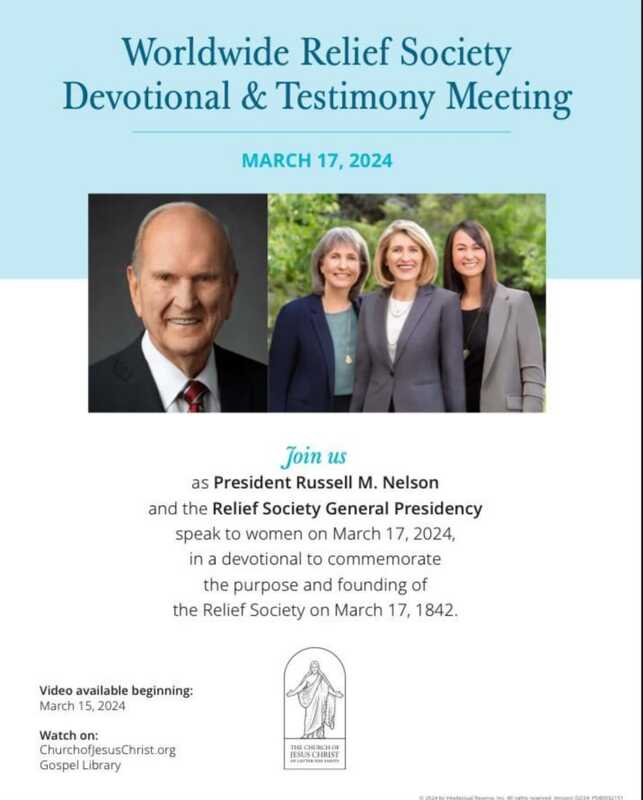

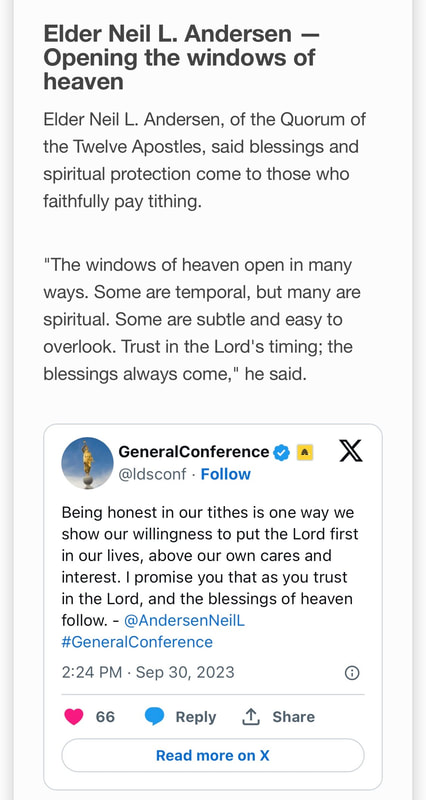
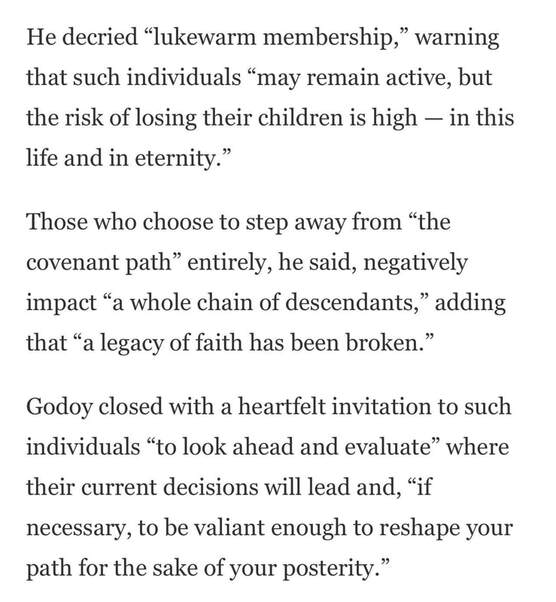

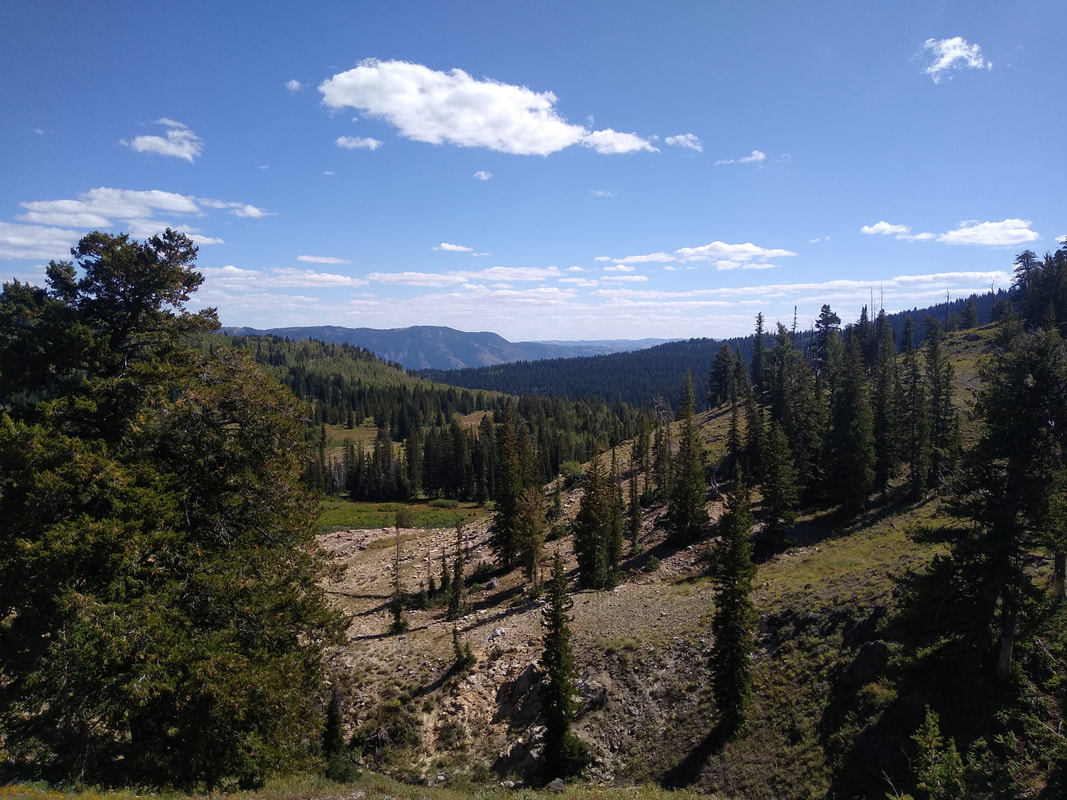









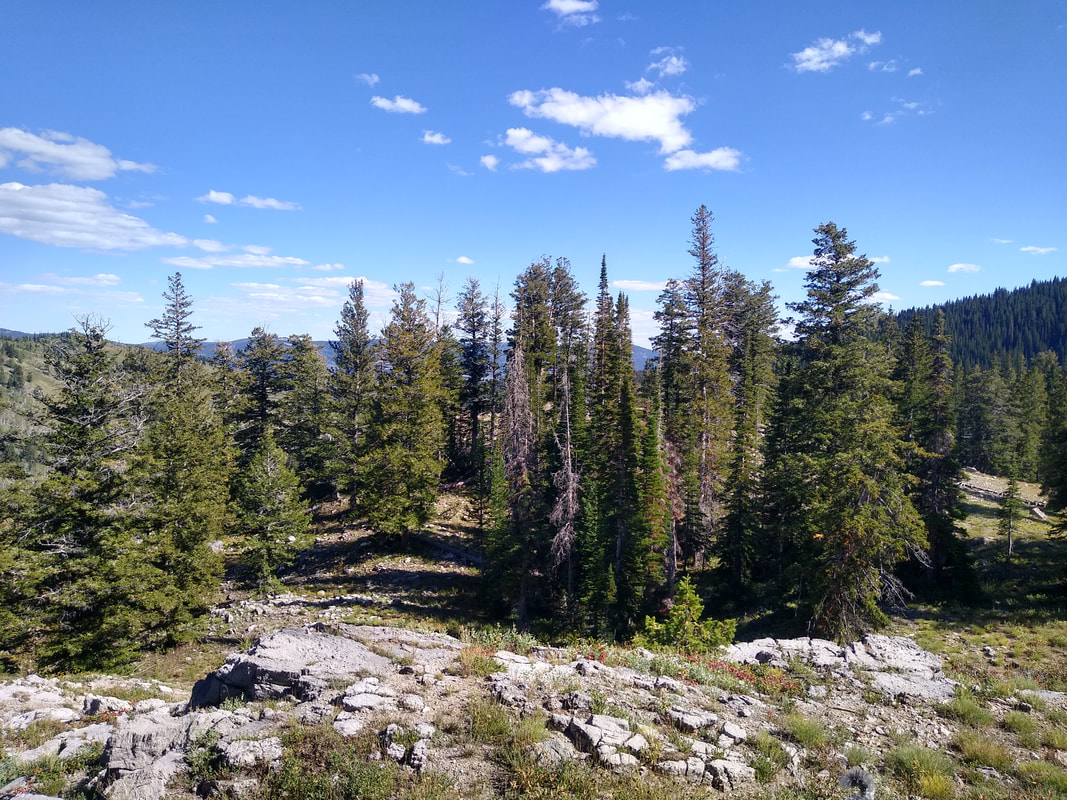

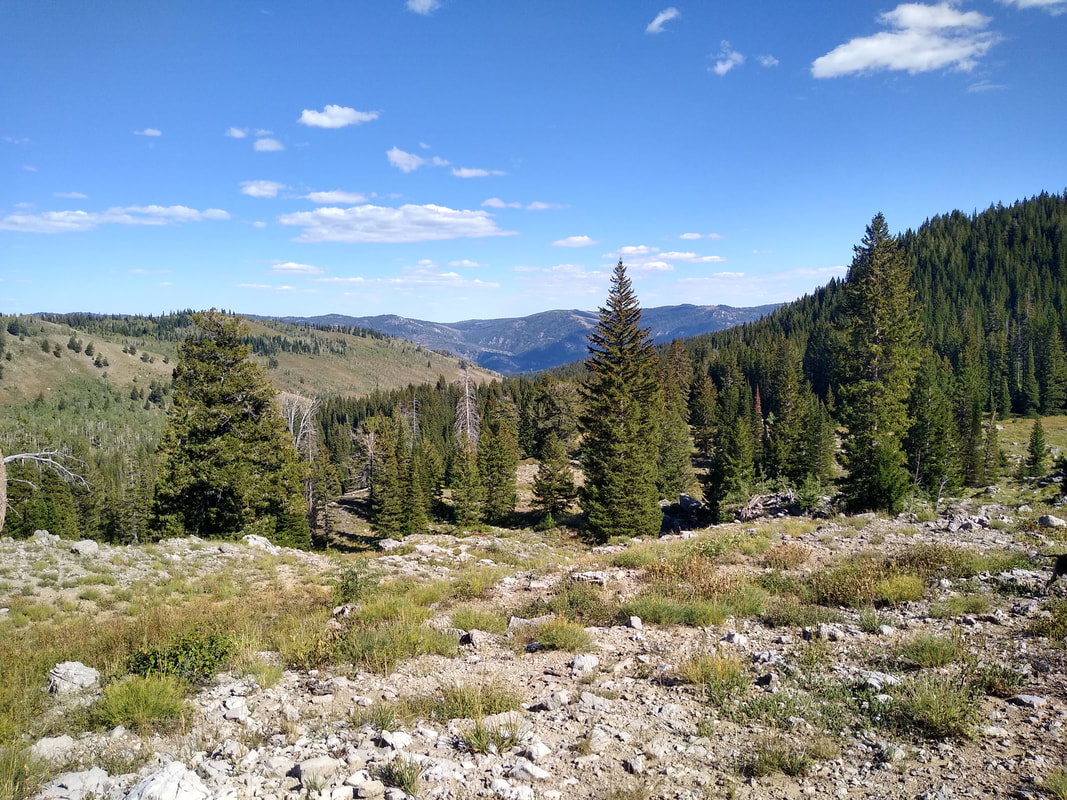





 RSS Feed
RSS Feed
